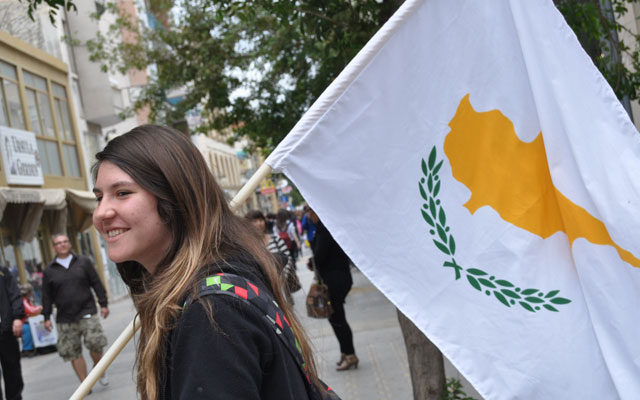As Cypriots come to grips with this week’s agreement to bail out its banks, Russian policymakers need to think about why their citizens are involved in this crisis.
Around 40 percent of Cyprus bank deposits belong to Russian individuals or businesses, and accounts with more than 100,000 euros now face write-downs of between 30 percent to 40 percent, at least in the two largest banks.
Why are a quarter of the deposits in Cyprus’s banks from Russia? The answer is twofold. First, Cyprus’s economic strategy involved making the island a tax haven for investors through low tax rates, an Anglo-Saxon legal system, and affordable real estate.
Many Russians took full advantage of this status, engaging in a game of “roundtripping”—sending money from Russian accounts to Cypriot accounts, and then back to Russian ones. As a result, Cyprus is the biggest foreign direct investor in Russia. Building this tax haven is one of the reasons why Cyprus (which now seems so obviously unqualified) became a European Union member in the first place. With EU membership, funds from Cyprus’s banks could easily slosh around Europe.
Second, economic freedom is low in Russia. According to The Heritage Foundation’s 2013 Index of Economic Freedom, Russia ranks near the bottom in economic freedom indicators, partly thanks to a dysfunctional legal system, poor property rights, expansive organized crime, and government corruption. This lack of economic freedom means that Russians aren’t interested in keeping their money at home because investment and political risk is high.
Look at Hermitage Capital Management, for example. When William Browder, its CEO, got in the way of corrupt bureaucrats he was blacklisted, and one of his auditors/lawyers, Sergei Magnitsky, who blew the whistle on a huge fraud scheme that allegedly involved Russian law enforcement officials, was found dead. It’s no wonder that over the past year Russia has been plagued with capital flight (the loss of investment), which reached $56 billion in 2012.
Prime Minister Dmitry Medvedev channeled Vladimir Lenin, the Bolshevik founder of the Soviet state, when he recognized the nexus of Russian corrupt money stashed in Cyprus and the EU “haircut” of the banks. He called it “the stealing of what has already been stolen.”
During his annual State of the Union address, Russian President Vladimir Putin said “we need a comprehensive system of measures for the deoffshorization of our economy.” Mr. Putin may not recognize it, but such a comprehensive system already exists: It’s called economic freedom. In his next speech, Mr. Putin would do well to talk about the lack of economic freedom in his country—a fault that makes the Russian government an accomplice in Cyprus’s economic crisis.































